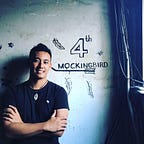The Time Traveller’s Wife started just fine. We are pulled into the premise right away — a bloke cannot help jumping through time, backwards and forwards. Along the way, he meets his future wife as a child. Wait WHAT? Yeah, so much for the premise of the book. Henry de Tamble, in his 30s, met his future wife when she was only six, and meets her through her childhood in different times all the way to his forties. Then they met normally, with Clare fully aware that Henry was going to be the man she marries.
This book is highly rated in Goodreads, and I suspect that for most people, that they can accept this romantic relationship. Clare and Henry, after all, are predestined to be together, and she accepts his chronological deficiencies as my partner accepts that I fart in bed after eating a lot of cheese. But isn’t this kind of relationship a bit sick? To echo a lot of other disgruntled readers here, Henry was grooming this child.
That’s not where the flaws end with the book though. I have an issue with the prose, and personally for me that this is a bigger issue than the premise, because after 500 pages, I really have to stop reading from the cringiness of the prose. And the dialogs. Urgh. All the conversations are cringeworthy, sentimental as fuck and unnatural. Not the prose was hard to read. In fact, it was easy to digest but this exposes the artificial sweeteners that coat the prose to its fullest.
The prose certainly didn’t help the characters. Beyond the prose, the character is really paper thin and unlikeable. We cannot relate to Clare, who works as an artist from a rich family running with maids and nannies in a huge ass mansion. I can’t really relate with Henry who’s a loser librarian who sure, knows things about a book or two. But I really don’t like him for any of his traits. And all the other minor characters are either plain or as unlikeable as the main character. The strongest character for me is Kimy, who is Henry’s father Korean landlady. But her interactions with the Henry and Clare are also pretty cringey.
For a book that quotes and mentions other works of literature throughout from start to finish, it struggles to reach the same level. Actually, I felt quoting Byatt, Rilke, Woolf, Dickens, etc. just makes the novel pretentious. This is the same issue I have with Murakami, as though the writing needs to borrow other superior author’s names to make itself feel legit. It’s like bragging to strangers that you shook hands with the queen’s dog — nobody gives a shit. Do it tactfully, with purpose, and not for self-indulgence.
How this book got into the BBC’s books to read before you’re dead list goes beyond me. There is nothing great about this book, but I guess books are a matter of personal taste. This one tastes like mush doused generously with the cheapest sugar in the supermarket.
